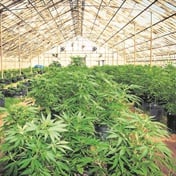A bi-annual index, which will offer invaluable insights into where countries are in terms of their institutional development, has just been launched.
The Dynamic Market Index 2016 is the creation of the Centre for Dynamic Markets at the Gordon Institute of Business Science. The index is an empirical tool that measures institutional progress and conditions within countries that enable economic growth, wealth creation, innovation, and overall socioeconomic development.
The period of data analysis for the 2016 index is from 2007 to 2014.
In regions like Africa, where basic structures, growth rates, and levels of development are vastly different, the Gibs dynamic market index offers invaluable insights into where countries are in terms of their institutional development, with a sense of where they are going.
This is important for both technocrats seeking ways to bolster their country’s competitiveness and investors seeking a deeper contextual understanding of markets for expansion opportunities.
“Access to high-quality information lies at the heart of making good business decisions. The pressure on companies with regards to decisions as to where to invest and how to compete in divergent markets has never been greater. The index is a comprehensive tool that measures the competitive performance of countries through the evolution of their institutions and institutional reforms and we hope it will become an increasingly important input into such decisions” said Professor Nicola Kleyn, dean at Gibs.
The index is a comparative global measure of institutional evolution and progressive structural change, which reflects and informs the competitive performance of nations across six enabling pillars of market dynamism, namely:
» Open and connected;
» Red tape;
» Sociopolitical stability;
» Justice system;
» Macroeconomic management; and
» Human capital.
It provides insights into the key attributes of the economies measured, and their true economic potential.
Two important features distinguish the index from other similar indices with comparative measures.
First, it focuses on institutional change over a period of time rather than a single static measure. Second, the index relies almost entirely on hard data as opposed to opinions, sentiments and surveys.
Countries fall into one of four categories, based on their performance:
- Catch-up markets – countries with very low levels of institutional development during the base year (2007) but which have made considerable progress in improving their institutional structures. Largely concentrated in Africa and Eastern Europe, catch-up markets, at 29.2% of the total countries measured, make up the largest percentage of the index for 2016. These typically showed a strong improvement in their sociopolitical stability and macroeconomic management. Notable examples include Rwanda, Albania and Vietnam;
- Dynamic markets – characterised by sophisticated institutions in 2007, and continued improvement to 2014. Dynamic markets, with a solid foundation of institutions and policies between 2007 and 2014, accounted for 21.5% of the 144 countries measured in the index for 2016. They are spread predominantly across Europe (largely Eastern Europe), Asia and Latin America. Only two African countries, Mauritius and Botswana, make it into this esteemed category;
- Adynamic markets, typically countries that have stagnated or regressed from their existing base level of reforms and institutions since 2007. Adynamic markets, accounting for 20.8% of the total, are scattered predominantly across Africa and the Middle East. The large majority of these markets performed relatively poorly across the comparative institutional measures, especially when it comes to being open and connected, and in terms of their justice systems; and
- Static markets, which had relatively high dynamism in 2007, but have stagnated or made little-to-no institutional progress up to 2014. Static markets, comprising 28.5% of countries measured – including South Africa – have demonstrated lacklustre performance in areas such as red tape, which contributed significantly to their stasis and decline over the period of analysis.
According to Professor Lyal White, director of the Centre for Dynamic Markets, “the results of the Gibs Dynamic Market Index 2016 not only reveals the progress and improved dynamism of those countries that are now categorised as Dynamic Markets, but exposes those markets that have stagnated or regressed in terms of their relative institutional dynamism and competitiveness. This second iteration of the index highlights the importance of implementing sustainable institutional changes, which is all-important for the ongoing competitive performance of countries seeking growth and development in the long term.”
On Africa’s performance, White added: “African countries have made steady institutional progress, demonstrated by improvement in the areas of sociopolitical stability and macroeconomic management. The results suggest that Africa can realise its true economic potential through ongoing institutional evolution and progressive structural changes, if implemented constructively across the continent.”
Kleyn said: “Our purpose as a business school is centered on improving organisational and individual performance through deep contextual understanding. The data available from the Dynamic Market Index develops our understanding of the issues facing general management across varying countries and geographies.”
Making a contribution to the creation and dissemination of thought leadership with respect to the companies, political economies, institutions and other factors that make up dynamic markets, particularly those in Africa is central to the work we do, concluded Kleyn.
» City Press is a media sponsor of the Gibs forums




 Publications
Publications
 Partners
Partners








